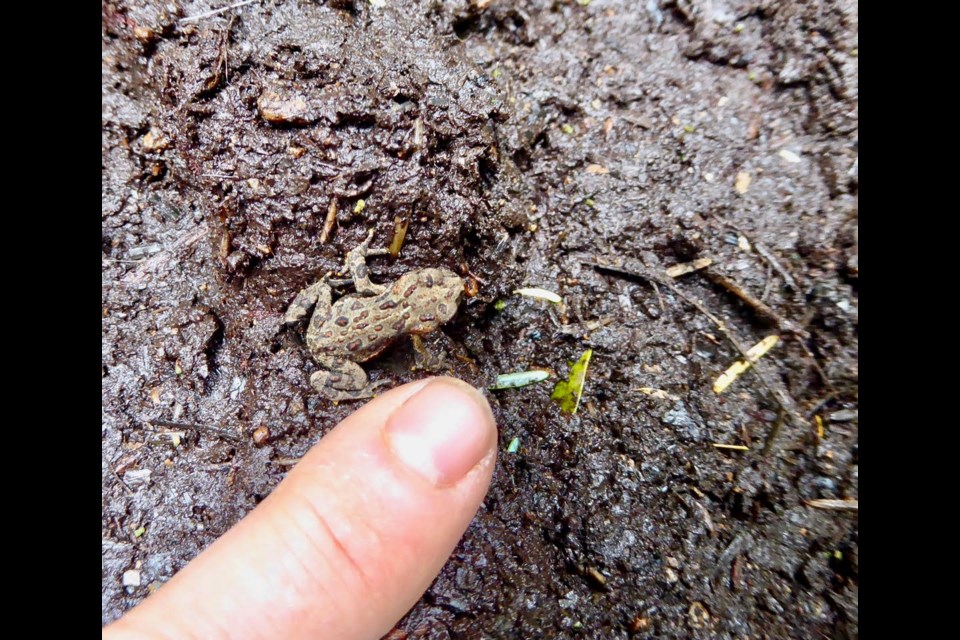Beware the toads, Squamish.
Tiny western toads are currently migrating across certain trails in town.
To allow them the best chance of survival, conservationists ask that trails on their path be avoided.
They are currently on The Covenant and Trestle trails as they move up the hill from the old golf course near Executive Suites Hotel and Resort.
"This is just trying to protect them during their migration," said Alison Wald, of the volunteer-run Squamish Environment Society.
These toads are the same species often found at the Edith and Fawn Lakes.
Many adult western toads breed in one particular pond at the old golf course. The resulting eggs develop into large black tadpoles, and then turn into miniature toadlets.
The pond is shallow, and it is warm and so migration is weeks and weeks ahead of anything that is happening at say Lucille Lake, or the Alice Lake lakes.
"It is a month early," she noted.
"They are now hopping their little tiny way north and east," Wald said, noting they are following a stream basin called Thunderbird Creek, which goes east to west, flowing down the Highlands toward the golf course.
Wald said the toads are so small and in such numbers that there is no way to avoid them if walking or biking through the trails they use.
"It is almost impossible to avoid squishing them."
This year, the Squamish Environment Society and the Squamish River Watershed Society are working together to track the toadlet development and keep ahead of the migration.
They organized a group of volunteers to check the progress of the toadlets’ development both at the pond and, now that they are on the move, on the trails.
Once their migration is done, the toadlets will stay in the forest until it is time for them to breed.
They live mostly on land. The only time they go into the water is to breed.
"Western toads are very faithful to their breeding grounds. They will come back every year to that same pond to breed," Wald said.
Their natural survival rate is already quite low, and they face many other challenges.
"They are very vulnerable, like all amphibians are, to mainly climate change and habitat loss; they can also get a fungus in the water that can kill them off," she said.
They are considered a species of conservation concern.
If you see them, send the location by email to: [email protected] and spread the word to avoid the trails where they are found.



